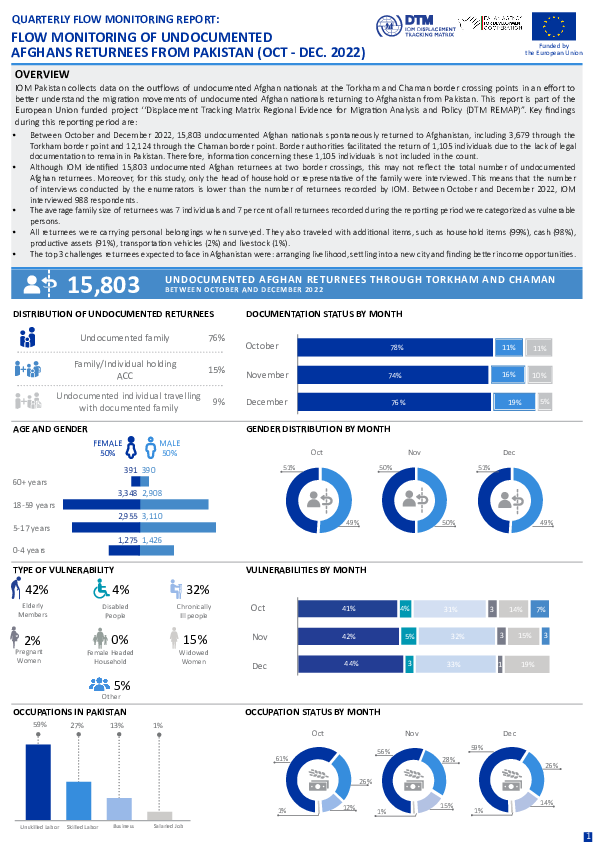-
Countries
-
Data and Analysis
-
Special Focus
-
Crisis Responses
Pakistan — Quarterly Flow Monitoring of Undocumented Afghan Returnees from Pakistan (October - December 2022)

Contacter
DTM Pakistan, iomisbdtmremapteam@iom.int
Langue
English
Emplacement
Pakistan
Période couverte
Oct 01 2022
Dec 31 2022
Activité
- Flow Monitoring
IOM Pakistan collects data on the outflows of undocumented Afghan nationals at the Torkham and Chaman border crossing points in an effort to better understand the migration movements of undocumented Afghan nationals returning to Afghanistan from Pakistan. This report is part of the European Union funded project ‘‘Displacement Tracking Matrix Regional Evidence for Migration Analysis and Policy (DTM REMAP)”. Key findings during this reporting period are:
• Between October and December 2022, 15,803 undocumented Afghan nationals spontaneously returned to Afghanistan, including 3,679 through the Torkham border point and 12,124 through the Chaman border point. Border authorities facilitated the return of 1266 individuals due to the lack of legal documentation to remain in Pakistan. Therefore, information concerning these 843 individuals is not included in the count.
• Although IOM identified 15,803 undocumented Afghan returnees at two border crossings, this may not reflect the total number of undocumented Afghan returnees. Moreover, for this study, only the head of household or representative of the family were interviewed. This means that the number of interviews conducted by the enumerators is lower than the number of returnees recorded by IOM. Between October and December 2022, IOM interviewed 988 respondents.
• The average family size of returnees was 7 individuals and 7 per cent of all returnees recorded during the reporting period were categorized as vulnerable persons.
• All returnees were carrying personal belongings when surveyed. They also traveled with additional items, such as household items (99%), cash (98%), productive assets (91%), transportation vehicles (2%) and livestock (1%).
• The top 3 challenges returnees expected to face in Afghanistan were: arranging livelihood, settling into a new city and finding better income opportunities.
